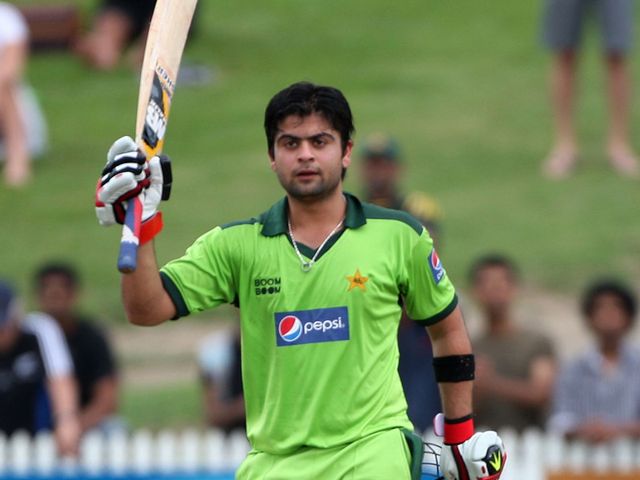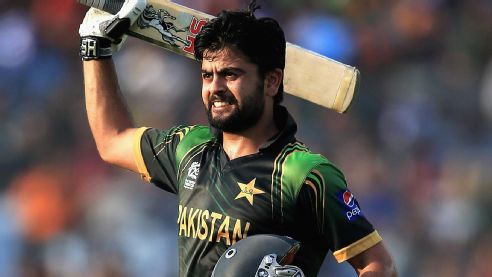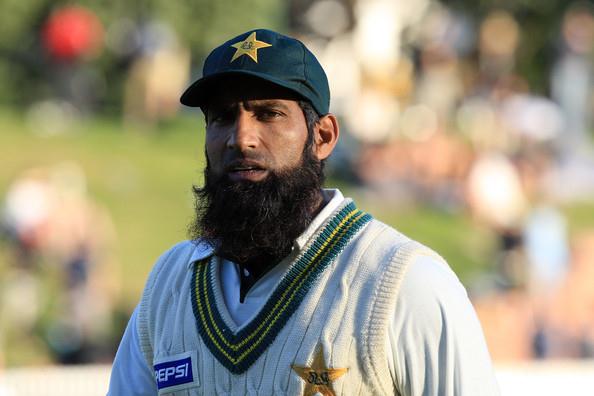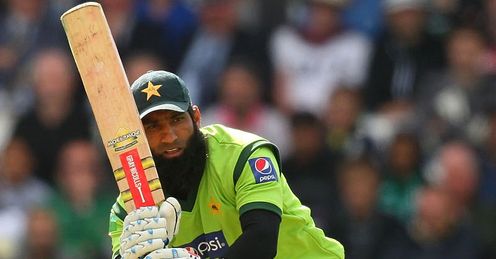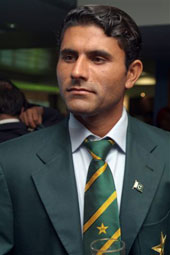Saeed Ajmal Biogrphy
Source link(google.com.pk)Saeed Ajmal is a Pakistani cricketer. He is a right-arm off-spin bowler who also uses the Doosra to good effect.
Early life and domestic cricket
Ajmal has played for Faisalabad since his debut in 1995 at the age of 18, also representing Khan Research Laboratories and occasionally Islamabad. After a successful season in 2007–08 for Khan Research Laboratories, he was named in Pakistan's squad for the 2008 Asia Cup.
In a domestic match Faisalabad vs Rawalpindi , the Pindi coach told ajmal that camera footages could be sent to board . Thus Saeed did not bowl any doosra , as Pindi hampered to a win.
International career
He made his debut against India, taking the wicket of Yusuf Pathan in an eight-wicket before taking two wickets in a ten-wicket victory over Bangladesh, although the team had no chance of progressing to the competition's final.
From there he has had a rapid rise in the team in just over a full year. He had an excellent time at the 2009 ICC World Twenty20, bowling at an economical rate and regularly taking wickets along with his spin partner Shahid Afridi. He was then picked for the Sri Lankan series in Sri Lanka where he had made solid performances in the Test matches, being picked ahead of Danish Kaneria in two of the matches.
Ajmal's good form continued in the 2010 ICC World Twenty20 as he was Pakistan's leading wicket taker. However despite his good form he was known for conceding three sixes to Michael Hussey in what has been hailed as the most thrilling Twenty20 match of all time as Australia were in trouble and Ajmal was the unfortunate bowler who bowled that final over.
Shortly after this the Pakistan team began there long tour of England and in the two Test matches played against Australia spinner Danish Kaneria was selected ahead of him. In the 1st Test against England Kaneria was selected ahead of Ajmal as well. However after poor bowling by Kaneria, Ajmal was selected and he took his career best bowling figures of 5/82 Despite Pakistan restricting England the team suffered a top order collapse and Zulqarnain Haider scored 88 and Ajmal also showed that he has the abiltiy to bat when he scored 50 runs these two men helped Pakistan lead a revival after being bowled out for 72 on the first day. Along with Zulqarnain Haider they together continued to frustrate the England and when it was stumps on day three Pakistan had a 112-run lead however Zulqarnain Haider and Ajmal were out on 88 and 50 respectively and so Pakistan were left on the final wicket with Mohammad Asif and Umar Gul. During the series against England Pakistan became englufed in a spot fixing scandal after the fourth test and in a later secret interview it was unveiled by alleged fixer Mazhar Majeed that Ajmal, Abdul Razzaq, Younis Khan and Shahid Afridi were difficult to bribe. He stated that Ajmal was too religious to get involved into fixing.
Skills in the art of spin
“ "With HawkEye coming in, left-arm spinners slide the ball on for lbws. Offspinners get a lot of lbws from round the wicket, so you [batsman] have to work really hard, and a bloke who's got a doosra you have to work extra special hard. ”
—England batsman Kevin Pietersen
Ajmal is known as an excellent spinner of the ball and strong especially against left-handers. He has a well disguised doosra and keeps it as a mystery while he bowls. His technique is noted for causing more spin than speed as that is what Ajmal prefers Which in a sense is similar to Danish Kaneria who likes to bowl slow spin but Kaneria has a different case as when he picks up more speed he tends to loose the spin of the ball. When Pakistan started there tour of England in 2010 former Pakistani off-spinner and the founder of the doosra, Saqlain Mushtaq had a coaching session with Ajmal to advise him on his spin techniques Ajmal's spin technique came in special hand against England in 2010 has he took his first 5-wicket haul to help restrict England. Kevin Pietersen congratulated Ajmal on the amount of spin he achieved. Ajmal though started his international cricket in limited-overs cricket and was one of the early off-spinners to possess the skills of the doosra. A stat shows that out of Ajmal's 38 wickets in Twenty20 cricket 13 of them have been stumped the most for any bowler in the game. Also it was of Ajmal's off-break that Zulqarnain Haider collected his maiden international stumping.
In 2009, University of Western Australia test indicated that his arm is 8.5° tilted due to accident and 23.5° bowling action is allowed for him. Saeed Ajmal also said in an interview that he had learned the doosra on his own and that the rated Saqlain Mushtaq as the best off-spinner ever and rated Muttiah Muralitharan in second-place. He also stated that Muralitharan was a very nice and down to earth person. Ajmal said that he planned to introduce a new delivery at the 2011 Cricket World Cup.
Saeed Ajmal

Saeed Ajmal

Saeed Ajmal

Saeed Ajmal

Saeed Ajmal

Saeed Ajmal

Saeed Ajmal
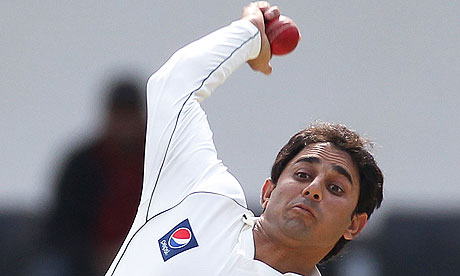
Saeed Ajmal

Saeed Ajmal

Saeed Ajmal



.jpg)







